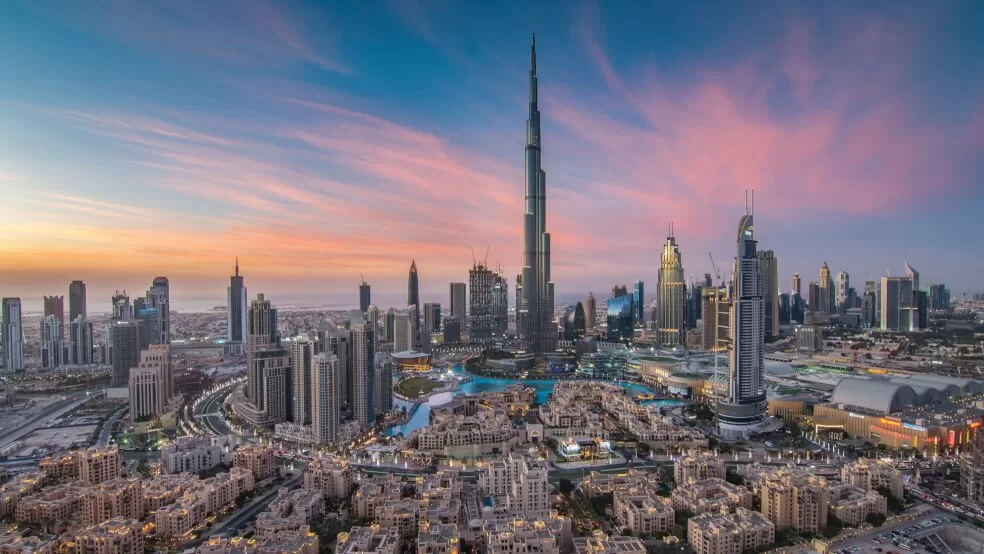Finance
Dubai Emerges as a Magnet for Asia’s Wealth Managers Amidst Growing Diplomatic Ties

Highlights
- Asian wealth managers are increasingly establishing a presence in Dubai.
- Warming diplomatic relations between China and the Middle East drive this trend.
- Leading the way, Noah Holdings is pursuing a business license in Dubai.
- The focus is on overseeing the rise of locally generated wealth.
- Dubai’s allure lies in its post-COVID rebound, business-friendly environment, and tax benefits.
- UAE’s incentives, including the ‘golden visa’ and ‘family wealth centre,’ contribute to Dubai’s appeal.
- Clients from Hong Kong and Singapore are exploring new investment opportunities.
- Capgemini’s 2023 report reveals a 2.8% increase in High Net Worth Individuals (HNWI) in the Middle East in 2022.
- Farro Capital and Tsang Group are establishing offices in Dubai to tap into this trend.
- A survey indicates that asset allocation to the Middle East is at 1%, with 7% planning to increase allocations.
- Dubai’s regulatory appeal, including its geopolitical landscape and initiatives like the golden visa system, further enhances its attractiveness.
In recent developments, a rising number of wealth management firms in Asia are establishing a presence in Dubai, leveraging the warming diplomatic relations between China and the Middle East. This strategic move is fueled by the anticipation of increased demand from clients seeking geographical diversification.
Dubai, a prominent financial hub in the Gulf region, is gaining traction as the preferred wealth management destination for entrepreneurs and affluent families in Asia, particularly from China. Wealth managers are capitalizing on favourable policies and the desire of their clients to expand businesses globally.
One notable player in this trend is Noah Holdings, a leading Chinese wealth manager overseeing approximately $23 billion in client assets. The firm is on track to secure a business license in Dubai by the end of this year, with plans to cater to Chinese entrepreneurs establishing businesses in the Middle Eastern market.
Qing Pan, the Chief Financial Officer of Noah Holdings, emphasized the firm’s strategy of aligning with the growth of clients’ wealth. He highlighted the importance of being present in Dubai to oversee and manage locally generated wealth. Pan mentioned that many Chinese entrepreneurs are actively seeking new markets and diversifying their supply chains, finding exciting opportunities in the Middle East.
The Middle East has gained significance for Beijing, especially as relations with Washington have faced challenges. Factors such as a post-COVID economic rebound, a neutral political stance, ease of doing business, convenient time zones, and tax-free status have contributed to the region’s appeal to wealthy individuals.
The United Arab Emirates (UAE) has introduced incentives like the ‘golden visa‘ system, and Dubai launched a ‘family wealth centre’ to assist wealthy individuals and businesses with cultural issues and governance. These measures have attracted a significant influx of expatriates and affluent individuals.
Western wealth managers, including Swiss private bank Lombard Odier, are also expanding their presence in the region to tap into the growing population of rich individuals and expatriates.
While Hong Kong and Singapore have traditionally been the preferred offshore wealth hubs in Asia, some clients are now seeking diversification into other markets to explore new investment opportunities. The Middle East, with its growing high net-worth individual (HNWI) population, presents an attractive prospect.
According to Capgemini’s 2023 wealth report, the global HNWI population decreased by 3.3% in 2022, while the Middle East’s HNWI population increased by 2.8% in the same year. The UAE, in particular, witnessed the highest net inflow of millionaires globally in 2022.
Recognizing this trend, Singapore-based multi-family office Farro Capital recently established an office in Dubai. Additionally, Hong Kong’s Tsang Group plans to launch new offices in Abu Dhabi and Riyadh following its Dubai entry in 2022. Landmark Family Office from Hong Kong is also gearing up to set up an office in Dubai to assist clients from China, Southeast Asia, and Australia in finding investment opportunities in the Middle East.
A survey of 76 Asia Pacific-based single and multi-family offices revealed that the average asset allocation to the Middle East is currently at 1%, with 7% of respondents planning to increase their allocations. The geopolitical landscape, along with Dubai’s regulatory measures and initiatives like the golden visa system, has contributed to the region’s growing appeal.
In conclusion, the wealth management landscape in Asia is witnessing a notable shift towards Dubai, driven by geopolitical factors and the region’s attractive investment environment. Wealth managers are strategically positioning themselves to meet the evolving needs of their clients seeking global diversification and new growth opportunities in the Middle East.

















































